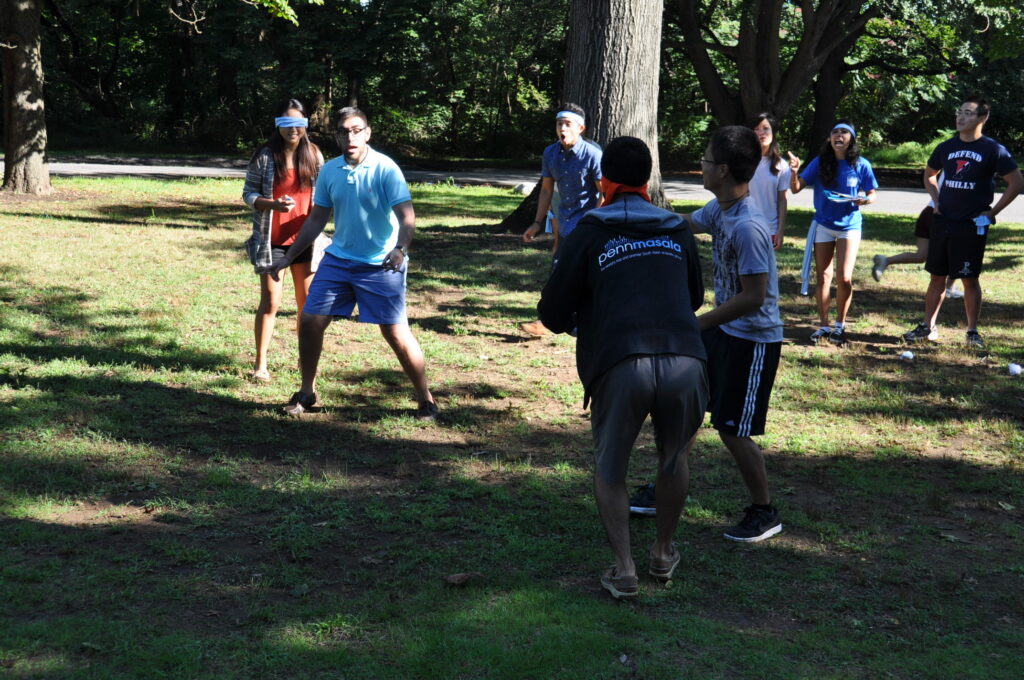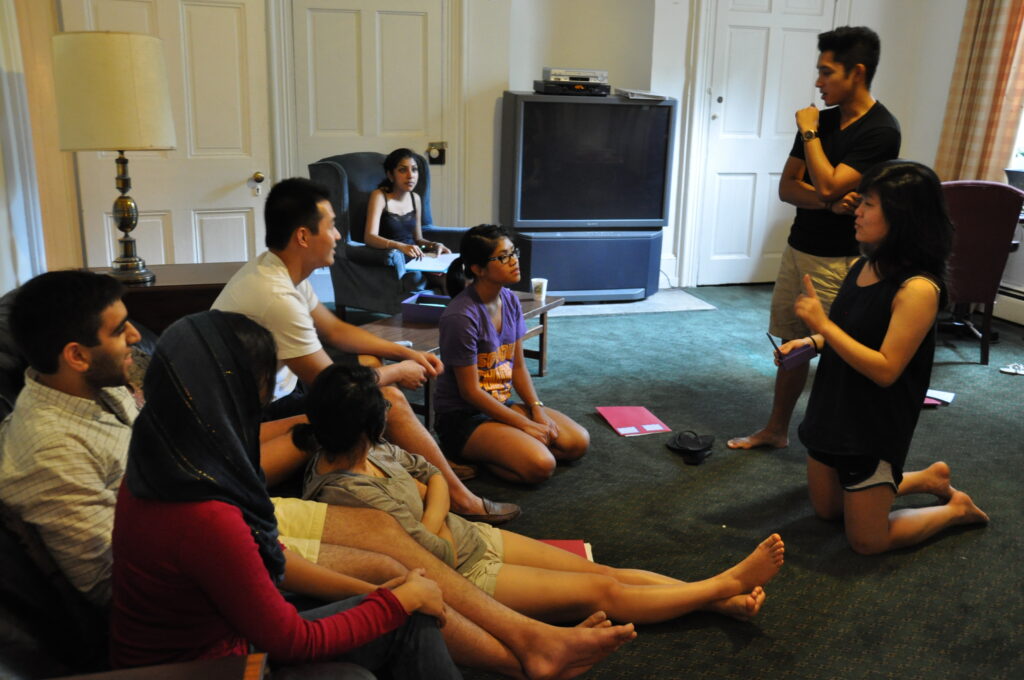The Mission
APALI began in the fall of 2001 as an initiative of the Pan-Asian American Community House. Through collaboration, PAACH staff and students developed an experiential program to meet the needs of the Asian pacific American (APA) community.The mission of the Asian Pacific American Leadership Initiative (APALI) is to empower students through identity exploration and leadership training in order to provide a foundation to support future endeavors.
The Objectives
APALI achieves this mission through the following objectives:
- Students will explore their leadership style through a multicultural lens
- Students’ individual experiences will contribute to the growth of the entire group
- Students will experience the complexities of the APA community
- Students will gain an understanding of a Pan-Asian American identity
- Students will be equipped to serve as agents of change in their future endeavors


The Program
The Retreat
The APALI Retreat sets the foundation for the rest of the program. Participants go off-campus for a weekend retreat and begin to build relationships with each other and develop tangible leadership skills that can be used in the future. They do this as they explore their identities and discuss issues that are pertinent to the Asian Pacific American community.
The Sessions
Following the retreat, members commit to attending 6 sessions throughout the semester. These sessions are usually every other Tuesday from 6:30PM – 9:00PM and are led by two facilitators who have undergone the APALI experience. Topics vary from year to year and evolve with the issues that are facing the APA community. Topics that have been discussed in the past include public speaking, consensus building, model minority, perpetual foreigner, affirmative action, hate crimes and other issues that are relevant to the APA community. By sharing their past experiences, engaging in dialogue, and participating in planned activities, participants learn experientially about their identity, empower themselves, and consequently prepare themselves for leadership roles in the future.
The Resources
In addition to the workshops, APALI subsidizes conference attendance for each student to develop leaderships skills relevant to issues within and beyond the APA community. Some conferences that past APALI graduates have attended include the East Coast Asian American Student Union Conference (ECAASU), the Korean American Students Conference (KASCON), and the Filipino Intercollegiate Networking Dialogue (FIND).
Furthermore, by collaborating with other groups and campus resources, APALI participants are exposed to different aspects of campus life.
Getting Involved
Testimonials:
As Asian Americans, APALI introduced us to a dialogue about personal cultural identities and where those identities placed us in society. I’m so grateful that it made me aware of APA achievements, historical roots, and issues of concern that still need to be addressed. For the welcoming inclusion that APALI and PAACH offered, it has honestly been among the greatest experiences I have ever had in my life. It drastically affected my worldview, as well as fueled my motivations to give back to the Asian Pacific American community at Penn. Bringing the state of the APA community into our consciousness also inspires young students, who have so much potential, to factor in the well being of these minority communities into their involvement. The program is an innovative way of learning in itself, as it draws upon a combination of external knowledge, personal history, and shared experiences with the rest of the APALI class. Getting to talk so readily and draw upon my own experiences instead of regurgitating external readings really drives the message home and encourages personal involvement to the subject matter.
Jenny Fan
APALI to me was really the most amazing and rewarding experience I’ve had at Penn. On a more global scale, it really helped me redefine my identity as an Asian American and opened my eyes to a lot of the issues that Asian Americans face in everyday life. Were it not for my experiences in APALI I would not have been so moved and inspired to get involved in the APA community at Penn and apply/get selected for APAHW board and the PEER mentoring program. On a more personal note, the talks really helped me better understand some of the issues that my family had, particularly my parents, and allowed me to form better relationships with them. I think APALI needs to be continued in order to offer an outlet where people who are interested in APA issues can meet each other and mutually inspire each other to become more pro-active and involved in the Penn community.
Scott Lee
